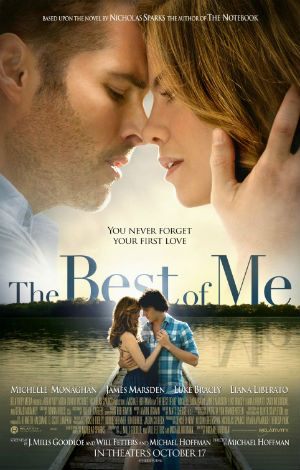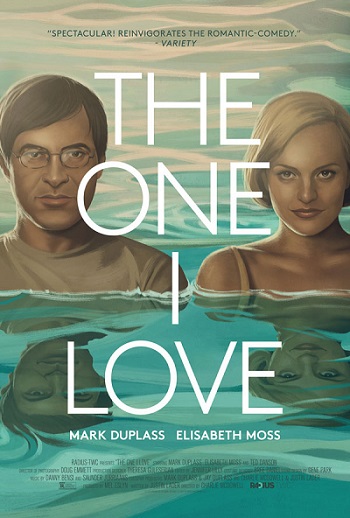Elvis the movie has much in common with Elvis the entertainer.
Both the movie and the entertainer (who is played, in the film, by Austin Butler) start strong, fall apart at the end, and leave you with a tear in one of your eyes once it’s all over.
Both the movie and the entertainer are big and unapologetically excessive yet also undeniably earnest as well. Considering the amount of music that appears in the film (from both Elvis Presley and others), it’s significant that the final song played is In The Ghetto, which features Elvis at both his most naïve, his most sincere, and at what some of his critics would call his most offensive.
Both the movie and the entertainer are occasionally shallow but both of them want to be about more than just screaming fans, libidinal desires, and radio-friendly songs. While Elvis (played by Austin Butler) watches the funeral of Martin Luther King, Jr. and the assassination of Bobby Kennedy and wonders how he should respond, the movie tries to make sense of and find a deeper meaning in the world’s fascination with kitschy Americana. The movie suggests that Elvis spent much of the 60s on the outside looking in and the same could be said of Australian director Baz Luhrmann and his attempts to observe and capture the contradictions inherent in American culture. Luhrmann’s kinetic style, which is one of those things that viewers will either love or hate, serves not just to capture the frantic energy of the late 50s and the 60s but it also allows him to remain detached from the world that he’s recreating. It’s his way of reminding us that, though the story may be about a real person and a real moment in time, it’s still just a movie and, even during the film’s most intimate moments, the audience is still on the outside looking in. We are the outsiders peeping in on the insiders, watching through a locked window that allows us to observe but not to interact. This is history as a fever dream.
Finally, both Elvis the movie and Elvis the entertainer face the same dilemma. What to do about Colonel Tom Parker? Tom Parker was the former sideshow carny-turned-promoter who took credit for discovering Elvis and who managed his career. Of course, he wasn’t really a colonel. His name wasn’t Tom Parker. And despite his claims to the contrary, he wasn’t born in West Virginia. No one, not even the film’s version of Elvis, seemed to be sure who Col. Parker really was. Parker is typically cast as the villain in the story of Elvis’s self-destruction. He made a lot of money off of Elvis but he also put Elvis is bad movies and trapped him in a Las Vegas residency. He made sure that Elvis got the pills that he needed to keep performing.
In the film, Parker narrates the story from his deathbed and angrily denounces anyone who would say that he was responsible for Elvis’s death. When he talks about the gamble he took on Elvis, Parker’s seen staggering through a casino while still wearing a hospital gown. Parker is played by Tom Hanks, who wears a prosthetic nose and speaks in an almost unintelligible accent. My first reaction to Hanks’s performance was to think, “Could they not have gotten Christoph Waltz for this role?” There’s nothing subtle about Hanks’s performance but then again, there’s never been anything subtle about Luhrmann as a filmmaker. As the film progressed, I started to better appreciate what Luhrmann was doing with the character and I think I even came to understand his motives for casting Hanks. If Austin Butler’s Elvis is meant to represent the optimism and the hope of America then it makes sense that he would be shadowed by the dark side of kitsch and there’s nothing more kitschy then casting an actor like Tom Hanks as the Devil. As an actor, Hanks is often casts in roles where he epitomizes old-fashioned integrity. By casting him as Col. Parker, Luhrmann challenges our expectations of who Tom Hanks can be in much the same way that Elvis challenged expectations of how music could be performed. This is a film that is fully aware of the irony of Elvis coming to symbolize America while his career was being managed and his image carefully constructed by a man who entered the country illegally and who couldn’t reveal his real name or his real biography. If Tom Hanks sometimes seems lost in the role of Col. Parker, it helps to remind us that Parker himself was often lost in America. If Tom Hanks is usually cast as the epitome of American exceptionalism, his casting here reminds us that Col. Parker was a man who achieved the American dream and who came to represent the American nightmare.
In the end, it’s Austin Butler’s performance as Elvis that keeps the movie from spinning out of control. Even while surrounded by Luhrmann’s stylistic touches and Tom Hanks’s bizarre performance, Austin Butler keeps the film grounded in reality by turning Elvis into a human being, a talented singer who loves his success but who also fears that he’ll never truly be worthy of it. Butler gives a performance that is full of sexual swagger but which also finds room for the small moments in which Elvis reverts back to being a lost child who feels like he needs someone to look after him. Interestingly enough, there aren’t many scenes in the film in which Elvis and Col. Parker show much affection toward each other. Instead, each feels like he needs the other to survive and, to a certain extent, they each resent the other because of that dependence. Austin Butler’s Elvis is the king when he’s on stage but, when he’s off-stage, he’s just another outsider looking in. Elvis becomes a symbol of America but the American establishment is only willing to fully accept him after he’s gone. If nothing else, this role should make a star out of Austin Butler. Before he played Elvis, Butler was best known for playing murderer Tex Watson is another fever dream of history, Tarantino’s Once Upon A Time In Hollywood. In Elvis, the title character retreats into his hotel room after reading about the murders that Tex Watson, under the direction of Charles Manson, took part in. As both a film and a character, Elvis understands that society is just as quick to destroy its celebrities as it is to idolize them.
Elvis is a flawed film, make no mistake. How the viewer reacts to it will largely depend on how much tolerance that viewer has for Luhrmann’s flamboyant style. At 2 hours and 38 minutes, it feels a bit overlong and, despite all of Luhrmann’s stylistic flourishes, the final fourth of the film is a conventional “rock star in decline” story. (In one way or another, these flaws are present in almost all of Luhrmann’s films, allowing one to wonder when a flaw ceases to become a flaw and instead becomes a directorial trademark.) Elvis is undeniably a Baz Luhrmann film but, fortunately, it’s also an Austin Butler film. It’s a big, sprawling, overwhelming, sometimes annoying and often very moving piece of cultural history. It’s a work of pure, unapologetic showmanship. Elvis probably would have lost interest after the first hour but Col. Parker would have loved it.




